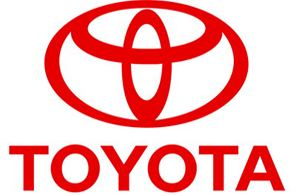Toyota to end Calif. joint venture with GM
TOKYO: Toyota Motor Corp. is moving toward liquidating its stake in a California manufacturing plant that it jointly operated with General Motors, the Japanese automaker said Friday.
Toyota has decided to begin discussions with the "Old GM" toward dissolving the joint venture, said Toyota spokesman Paul Nolasco.
"Since GM pulled out, we've had to look at all kinds of things we could do," Nolasco said. "Toyota right now is in a really difficult situation. We're pressed to make hard decisions." He said it will take time for Toyota to "work out how to wind down" the Fremont, California-based New United Motor Manufacturing Inc., also known as NUMMI.
A GM spokeswoman was not immediately available to comment.
The plant's fate was thrown into question last month when GM announced it was withdrawing from the 50-50 joint venture. GM emerged from bankruptcy protection shortly after the announcement and the company's stake in NUMMI is now part of Motors Liquidation Co. - also known as Old GM - where it will be liquidated under court supervision.
The NUMMI plant, established in 1984, employs 4,600 workers and makes the Pontiac Vibe station wagon for GM, and the Corolla compact car and Tacoma pickup truck for Toyota.
Toyota has been reexamining its U.S. strategy after plummeting U.S. auto sales helped drag it to its worst-ever overall loss for the fiscal year ended in March.
On Monday Yoshi Inaba, president of Toyota Motor North America and chairman of Toyota Motor Sales USA, said the Japanese automaker was carefully evaluating its options for NUMMI and hoped to make a decision "as quickly as possible." He said Toyota was studying whether it could be economically viable in the future and considering factors such as the company's idle factory space, labor and image.
California represents Toyota's largest market within the U.S.
California lawmakers have held discussions with the company about ways of keeping the plant open.
The United Auto Workers union represents employees at the joint facility and their labor contract expires next month. The joint venture was developed to have American workers learn Toyota's production methods, which were much leaner and more efficient. The UAW has not been able to organize workers at a Toyota plant in the U.S.
AP-TK-24-07-09 0425GMT<.






